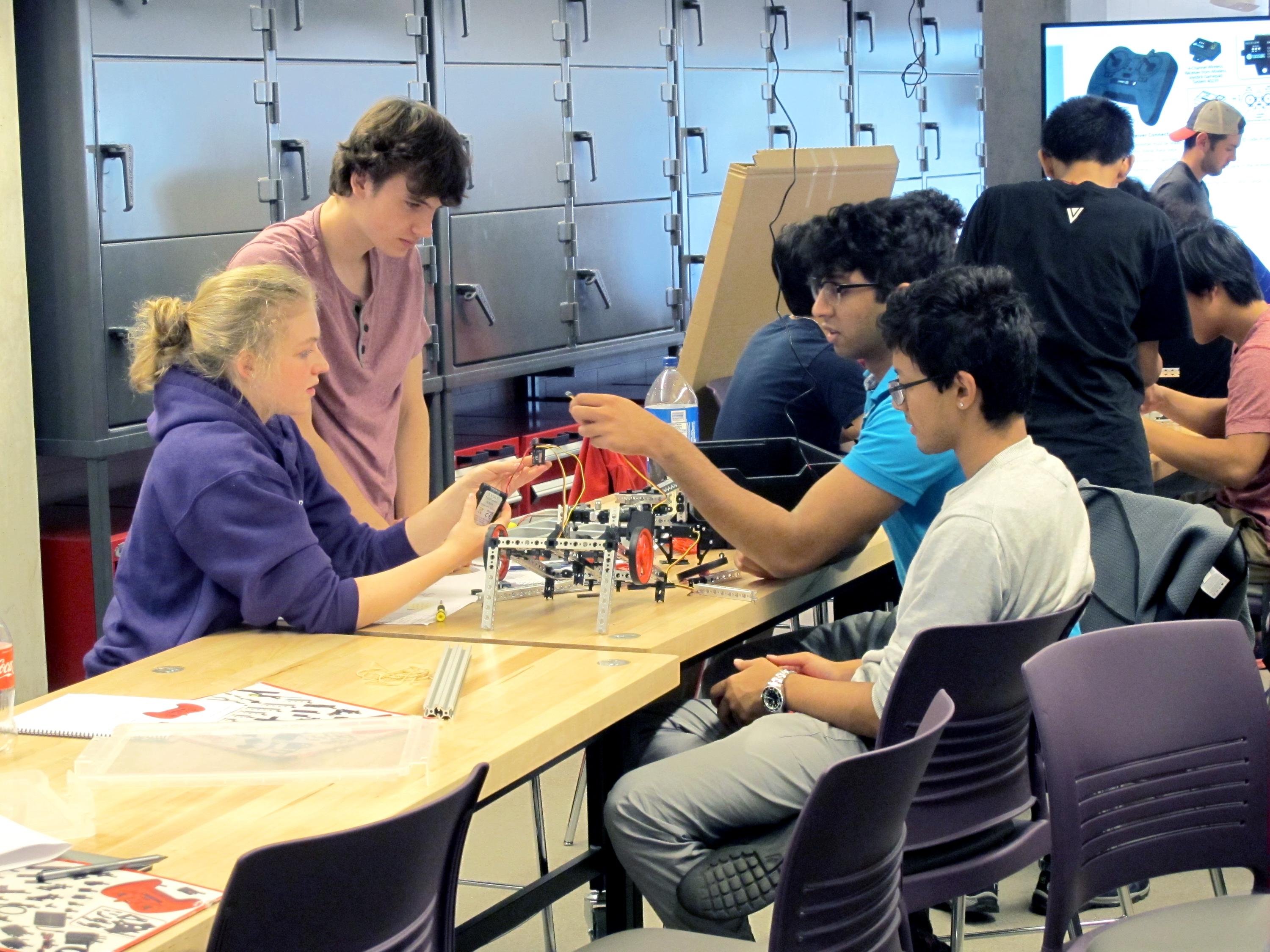Twelve programs have created Engineering Design Days for their first year curriculum: Architectural; Chemical; Electrical and Computer; Environmental and Geological Engineering; Management; Mechatronics; Nanotechnology; Systems Design/Biomedical; Mechanical; and Software Engineering.
Architectural Engineering Days
Students in Architectural Engineering were tasked with designing a piece of furniture for a given location in and around Engineering 7. After designing their piece, they had to create the mold(s) for any parts that were to be cast in plaster and construct the remaining components of their design from honeycomb cardboard. They finished the event by assembling their furniture and verifying their strength through destructive testing.
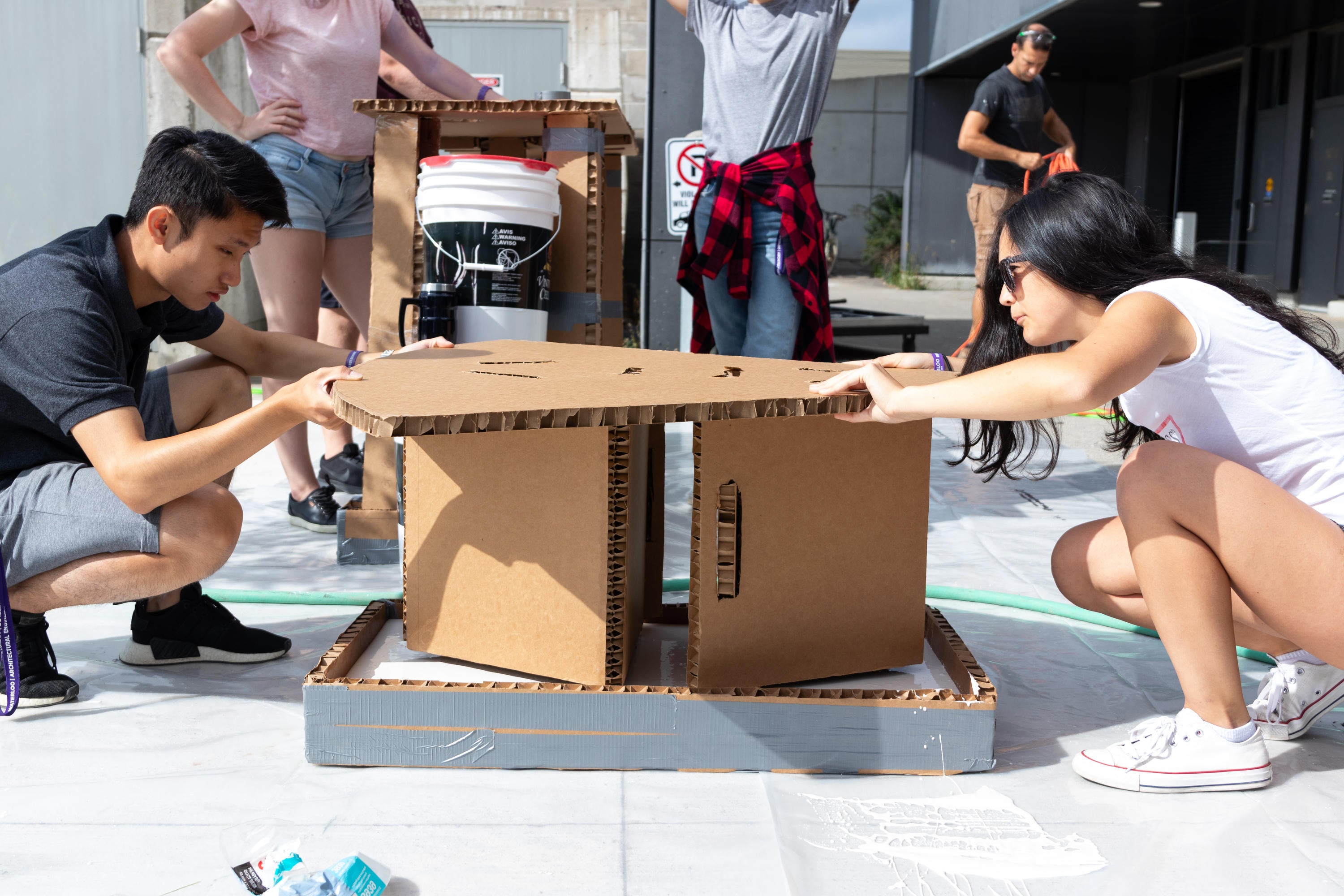
Chemical Engineering Design Days
Chemical Engineering at the University of Waterloo reimagined the first-year curriculum to include an experiential “Design Studio” course in both 1A and 1B. This studio was intended to develop a platform for design thinking in our student through experiential learning. In their first semester, students in Chemical Engineering develop and produce a product: soap. Students were introduced to the chemistry of soap and the stoichiometry of saponification reactions. They were challenged to develop criteria and constraints with regards to soap formulation and were tasked to make (and re-make) a soap suitable for "sale". In the end, students were engaged in an exercise to price and market their soap, prior to a final end of term jamboree, a sort of market for soap sales, called the Design Symposium.
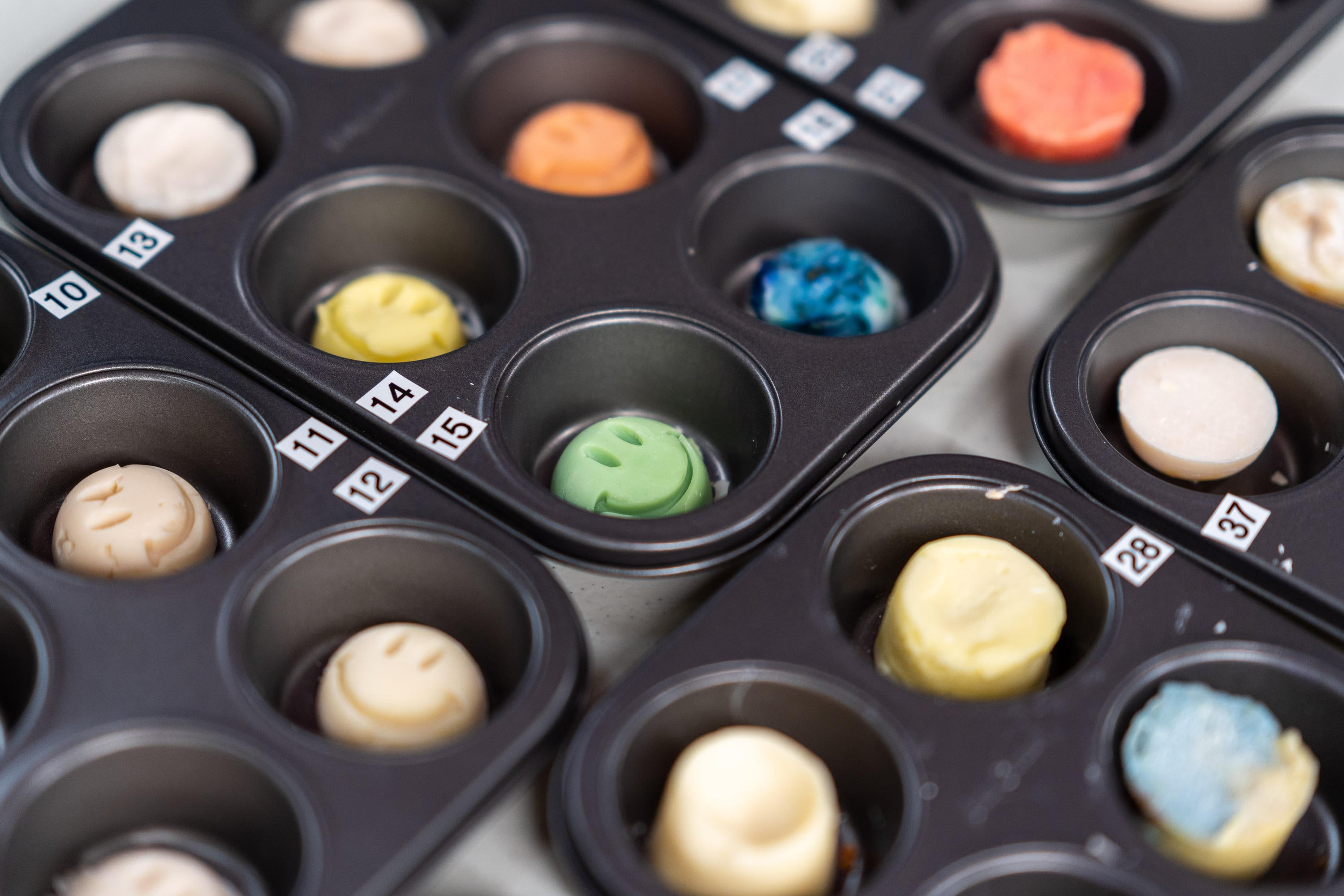
ECE Design Days
During ECE Design Days, students will work with their classmates to solve open-ended problems from across the ECE spectrum. Students should be actively seeking out information online and discerning its quality and value – the purpose is to force you to find your own solutions.
Students will earn (and sometimes need to spend) ELECTRONS:ELectrical and Computer Engineering Currency To Redeem On Neat Stuff. Each activity gives an opportunity to earn ELECTRONS, but the outstanding application of what you have learned may result in the awarding of bonus ELECTRONS throughout the event.
Environmental/Geological Engineering Days
In the first year Enviro/Geo Engineering Design Days, students design, build, and test a cross-section of a landfill. On the morning of the first day, students attend information sessions given by guest speakers from industry to ground the challenge in the real world. Students construct their landfill using authentic materials (with foam playing the role of garbage). Their designs are tested for their ability to control liquid seeping out of the landfill.
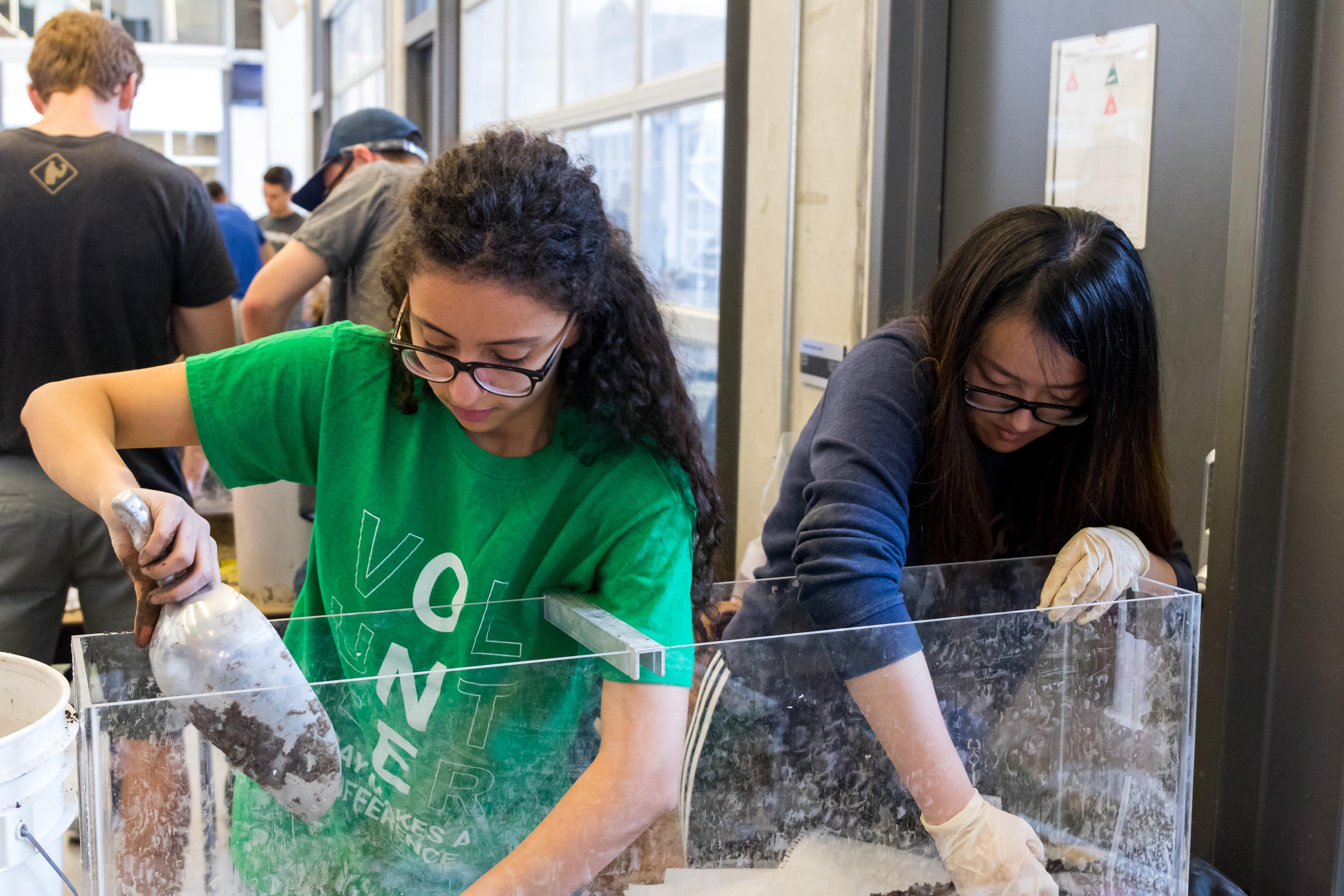
Management Engineering Case Days
First of all, what is Management Engineering? Management Engineering focuses on improving the efficiency and effectiveness of processes and systems, both the systems themselves and what they produce. The discipline is multi- and inter- disciplinary and delves deeply into problem-solving. How can problem-solving be more efficient and effective? How can better decisions be made? How can the tools and methods used for the decision-making be improved? Students often struggle with answering these questions, especially early in their undergraduate career.
In 2015, three Case Days were designed and inserted into a first year Management Engineering Concepts course to provide an intense and deep experience in discipline-specific problem-solving, teamwork and project management. On the morning of each Case Day, the students were given an ill-defined problem with a vague set of requirements that was due by the end of the day. The students were expected to meet submission deadlines throughout the day while also meeting with advisors who could provide feedback and guidance.
With an emphasis on the journey, and not the destination, and with lots of 'aha' learning moments for the students, the Case Days were a huge hit for students and instructors alike!
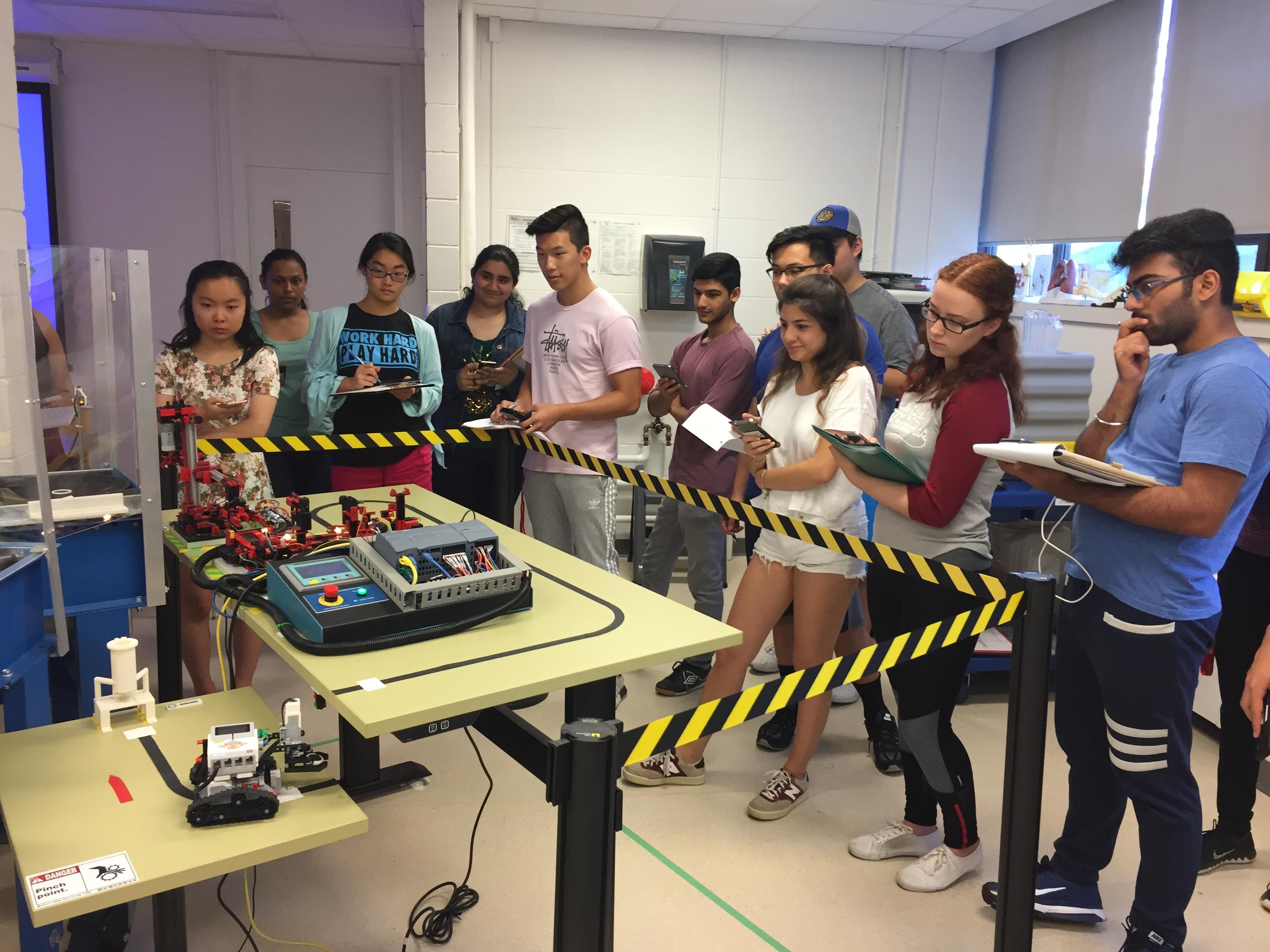
Mech Days
Welcome to Mechanical Engineering Days! Over the course of two days, 1B Mechanical Engineering students will work on integrating concepts and skills from 1A and 1B to create an engineering design. This design will need to satisfy a list of specifications created by a real client. During the two day event, students will work in teams to complete a full analysis of the problem, and verify their analysis with a low fidelity prototype.
Mechanical Engineering students developed a small device that could maintain a constant flow rate of water for several minutes. With this device in hand, they had to design, construct, and demonstrate a working mechanical clock powered by falling water. In the final fun demonstration, students used their clocks to accurately count out 3 minutes. If their clocks were not precise enough, one of their teammates got soaked by falling water!
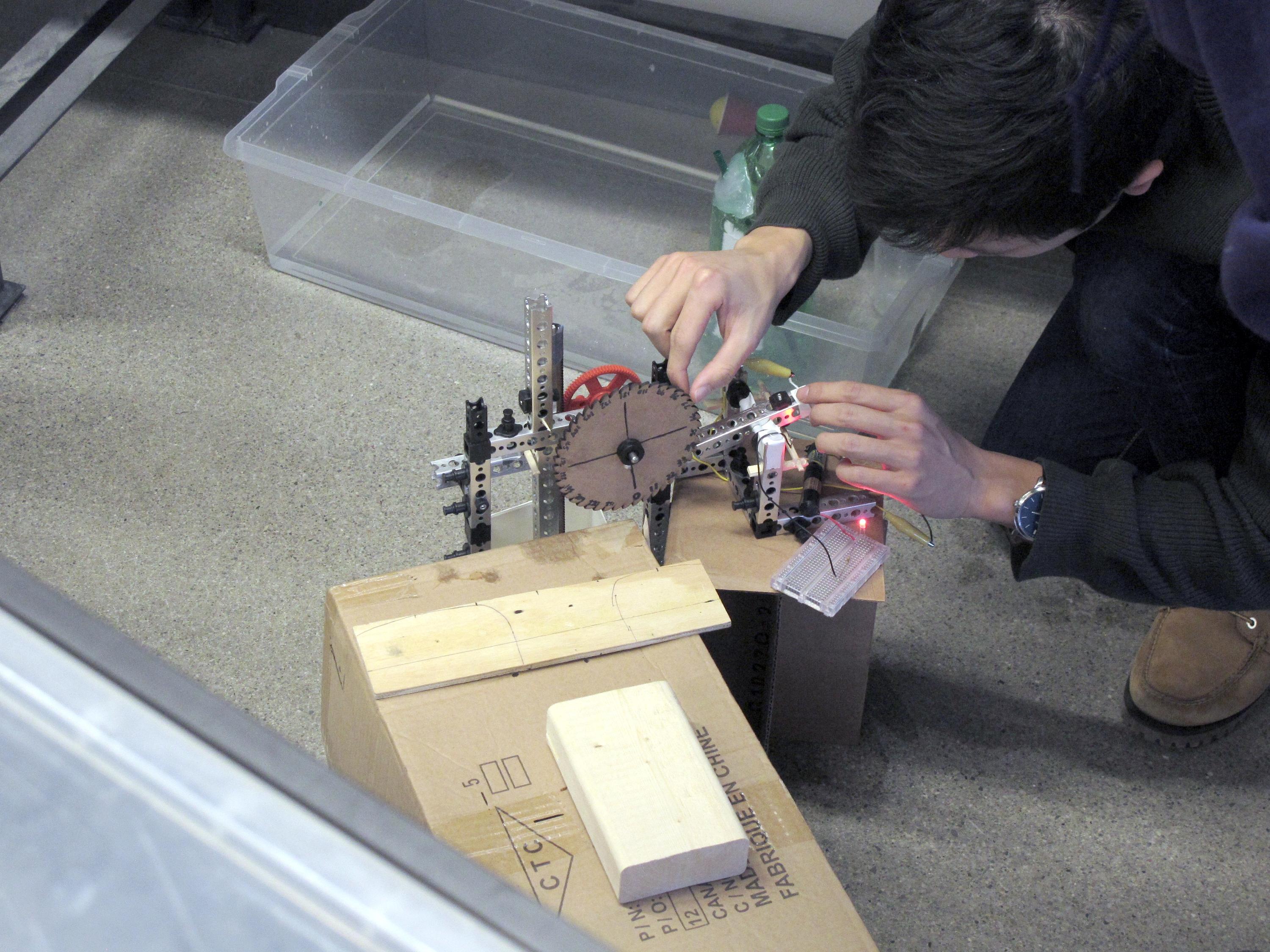
Nanotechnology Engineering Design Days
Students in Nanotechnology Engineering design, construct, and test small-scale scanning tunneling microscopes. These microscopes require students to integrate the knowledge they have learned in first year, and give them exposure to chemical etching, electronics, embedded programming, and piezoelectric materials.
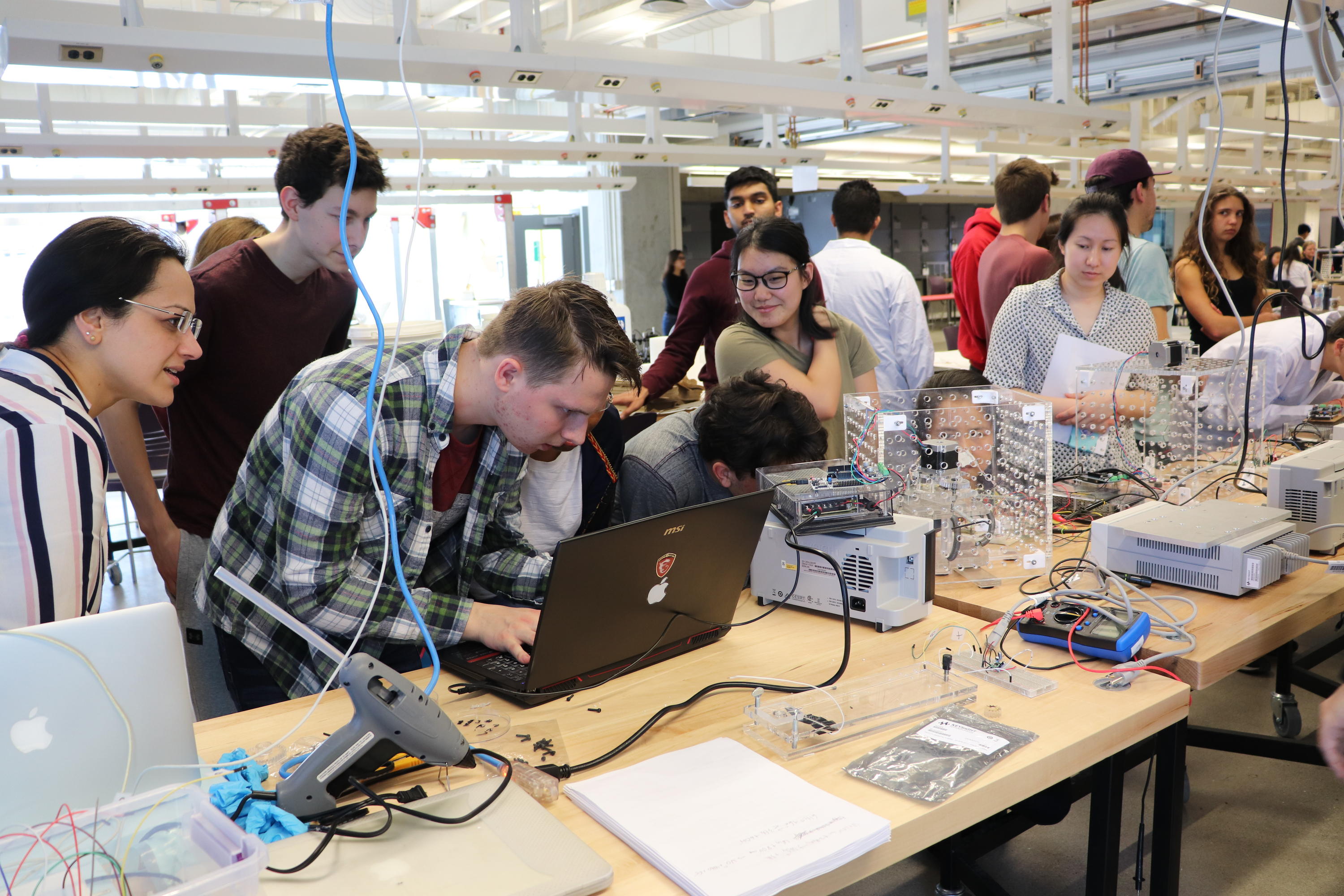
Software Engineering Design Days
By one definition, Software Engineering can be described as "multi-person development of multi-version software". To showcase the collaboarative nature of modern software development, students in Software Engineering constructed spaceships in the Unity video game development environment. Each ship had 4 components that had to integrate together and each component had a team of 4 students working together to develop the software. With a focus on collaborative software development, the students needed to manage the work of their large teams of 16 using Github. Ultimately their finished ships were sent through a simulated space environment to see if their ships would survive the dangers of inter-stellar space!

Systems Design/Biomedical Engineering Design Dayz
At the start of their first semester, over two fun-packed days, students in Systems Design Engineering (SYDE) and Biomedical Engineering (BME) will receive hands-on orientation to their program, courses, resources, faculty members, teaching assistants and department traditions. This orientation will help students realize the connection between the design and technical courses, connect courses with the overall program objectives, and develop their identity within the SYDE/BME community.
As part of the orientation, students will take part in the Design Dayz Challenge which will provide them with an opportunity to experience a practical design challenge in a fun, yet competitive, environment. Students will work in teams and will have to apply ingenuity in order to win awards offered in a number of categories.
Tron Days
In the first semester of the Mechatronics curriculum, students will get two days with no lectures where they can work on large engineering problems which unite the 6 courses they are enrolled in (Mechatronics Engineering, Engineering Graphics and Design, Digital Computation, Algebra, Calculus, and Chemistry).
During the high-intensity event, students will model complex engineering systems, verify these models, and develop their skillsets as young professionals. The event will end with awards being presented in a number of categories.
